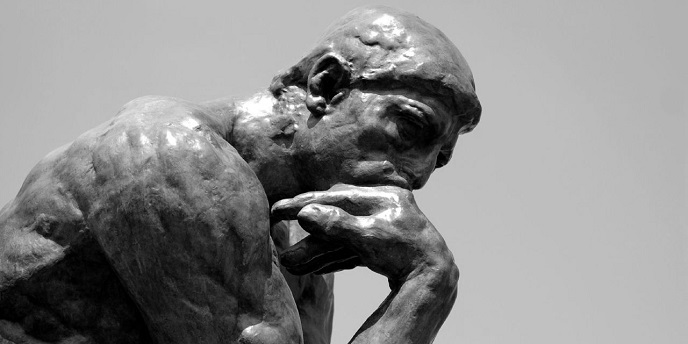Some thoughts about the existential philosophy /part 5/
godflesh·@godflesh·
0.000 HBDSome thoughts about the existential philosophy /part 5/
As for the self, we say everything possible: characteristic, intellectual and temperamental qualities, a place in the space and the position in which it stands. But everything we attribute to "I" stands for him in a different basic attitude than the qualities of something to something. The thing is nothing but the intersection of its qualities, and if we take those qualities from it, then it remains only a categorical scheme - a blank conceptual form. The "I", on the contrary, "unpacks" the cover of all its qualities, but there is no empty mental form: it is existence.  [image source](https://studybreaks.com/college/in-defense-of-uselessness-why-i-am-a-philosophy-major/) The thing is considered in its own space and time itself, it is a short space and a fulfilled time, whereas for the "I" the space in which it stands and the time in which it lives are only one "how" and a way of its existence. # The term "God" With Heidegger, God should be thought of as pure and free from any connection with fateful existence, yet there is a danger that he may be reduced to the inexhaustible "nothing." Every attempt of man to impart the meaning of God is reduced to the destiny given to him (man) and to what he (the man) can do from this destiny. The loose of fate remains a gap, and the void of the absolute void. In such a gap, in such a "nothing" - instead of the completeness of the existence that Spinoza places in its God, we reach that when we think of a fateful God's being. It is questionable whether "something" is being improved by calling it a creative "nothing", if so does not only grow the "baroque" of the concept. It should be noted that this is not a deity whose nature escapes from our gaze as unknowable, so there is no point in talking about one thing. The negative theology that would appear here is different from what is said in the history of philosophy as a negative theology of a Dionysus or N. Kuzanski, which is based on the insufficiency and the untruth of any positive knowledge of divine qualities. If we want to find a solution to this paradox, it can be sought in the direction of two thoughts: if the perceived and comprehended knowledge presupposes a "what", a perceived essence, then everything unnatural, purely existent would escape the possibility of basic knowledge and, on the other hand, that every sentient knowledge points to something that is not self-explanatory, and to which the question asked about what "can not only be satisfied with an answer, but is meaningless.
👍 mys, godflesh, yujomar, imperfect-one, boomerang, sam7, screwballpsyche, ivach13, alexis555, uglyogreh, andresaulait, aboss, apartphilosopher, wave.beads, rarebooksleuth, funnystuff, baqir, catchawhale, phatima, dfruit, jurik, curation.trail, bukiland, xrp.trail, boostar, arcange, raphaelle, phusionphil, pipokinha, santinhos, jorge-caceres, flaccidfervor, hackerzizon,